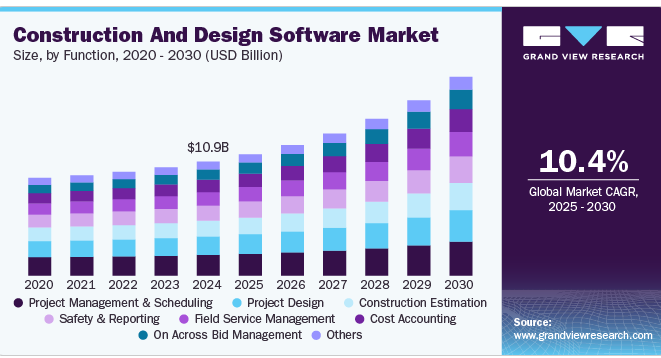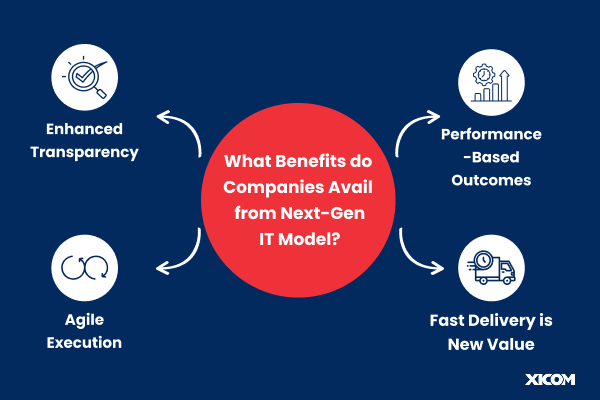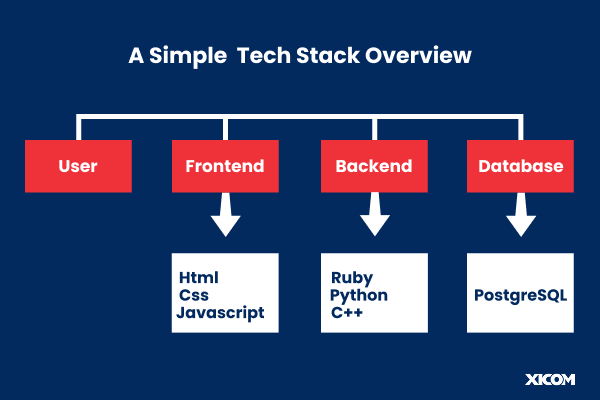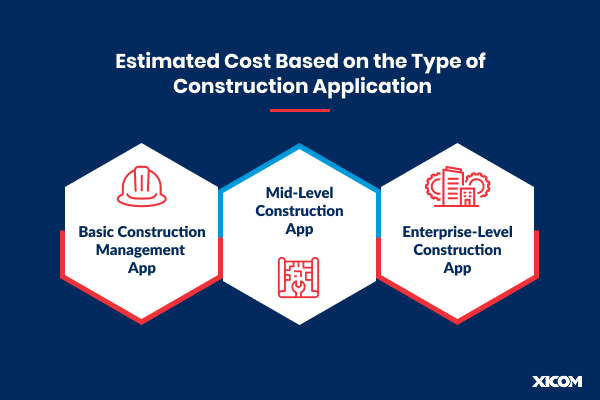Feb 12, 2025 Software Development
Construction Software Development: Full Guide
Feb 12, 2025 Software Development
Table of Contents
Feb 12, 2025 Software Development
In today’s digital era, investing in construction software development solutions is like creating digital tools that assist in streamlining various aspects of a construction project.
From managing projects and their estimations to resource allocation and document management, rightly developed digital tools in the construction industry have come a long way.
The construction industry does adopt digital technology – slowly, but with bold confidence!
Wondering how and why?
A construction firm overseeing multiple projects each running with unexpected delays, budget overruns, and miscommunication between teams. Despite years of experience, the unpredictability of manual processes creates constant hassles.
Now, in contrast to this, construction firms leveraging cutting-edge construction management software get straight access to real-time collaboration and can automate workflows. With AI-driven analytics, businesses can turn potential setbacks into swift resolutions.
Over time, the construction landscape has undergone a transformative shift. Where people are draining and pouring expensive hours into manually calculating material qualities and labor costs, introducing customer construction estimating software has revolutionized how the industry works now.
As the construction industry is strongly embracing digital transformation, understanding the cost of building construction management software, its types, benefits, features and more makes real sense.
The Business Research Company report says that the construction software market size is expected to grow from $4.06 billion in 2024 to $4.59 billion by 2025 at a CAGR of 12.9%.
As the demand for advanced construction software development keeps increasing, therefore the growth is projected to lead to a market volume of $11.72 billion by 2029.
The US is expected to generate the highest revenue in this market, amounting to $5,467 million in 2025.
If coming to discuss the popularity of construction software development requirements across the globe, then these demands are majorly leading the way in countries like the US and Germany.

Though the market has kept expanding, but at a slow speed. The survey report says that the construction companies, which somehow managed to adopt construction management software have observed a growth of operational efficiency by 12%, customer experience by 14%, customer trust by 12%, and employee experience by 11%.
Overall, nevertheless, a major segment of construction businesses keep ignoring the digital transformation in their business.
Here’s why!
While digital transformation is reshaping industries the construction sector still faces several hurdles in fully embracing software solutions. Here are a few to consider:
The construction industry has long been fragmented, with multiple stakeholders including contractors, engineers, suppliers, and more. Each stakeholder is following their processes of handling legal procedures. Integrating all these parties into a single, seamless digital ecosystem remains a significant challenge.
Many construction firms have still heavily relied on manual processes for years. Convincing them that digital tools can simplify their work is no easy task, especially when they lack exposure to software solutions in their field and are unaware of the benefits of hiring a mobile app development company to create construction software for their business.
No matter whether you are an aspiring enterprise or a leading entrepreneur. Budget constraints often take priority, and contractors are always looking to minimize expenses. Investing in construction management software may seem like an unnecessary overhead unless its benefits – such as efficiency gains and cost savings – are demonstrated.
Construction projects inherently carry high risks due to unforeseen delays, material shortages, and external factors. Adding a new digital solution introduces another layer of uncertainty- will it enhance operations or create more complications?
One of the biggest roadblocks is determining who should take the lead in implementing construction software. Should it be the contractor, the developer, or the engineering firm? Even if a solution is adopted, aligning all stakeholders and ensuring consistent usage across teams can be a daunting task.
Looking to beat these challenges with a perfect solution? Let Xicom enable you to hire software developers that help customize the construction solution which helps you streamline the process, simplify calculations, and allocate resources correctly.
The construction industry is rapidly evolving and the companies that are embracing digital transformation have gained a significant edge. The report says that 62% of customers are straight away ignoring businesses with no online presence. Such inefficiencies cost the industry $177 billion annually.
Well, the only solution to stay ahead of the game is to look for construction software development services that enable you to extract the big value from the industry.
Here are a few major benefits of choosing the best app development company for construction software development:

In today’s fast-paced digital era, a strong online footprint no longer remains an option, rather it’s a necessity of the time. Construction software offers a centralized command center where businesses can manage projects, engage clients, and able to showcase their portfolios.
With these small efforts, your clients can have real-time updates on the project with auto-generated reports. In this simple way, firms can build credibility, attract more clients, and gain a competitive edge in an ever-evolving industry.
Did you know that a staggering 35% of construction professionals waste over 14 hours per week on optimizing tasks?
Construction software eliminates manual inefficiencies by automating scheduling, resource allocation, and document management as per requirements. The major integrated features like real-time tracking ensure every aspect of a project stays in sync, allowing teams to work smarter and meet deadlines with ease.
By using such smart construction software solutions, firms can increase their productivity by 30%.
Connect, collaborate, and conquer the challenges with strategically developed construction software. If you are still taking it casually and delaying hiring a software development company then you need to know that poor communication can cost the construction industry over $31 billion annually!
Construction software breaks down the challenges with integrated instant messaging, document sharing, and task-tracking tools. Whether it’s contractors, architects, or clients, everyone stays informed—reducing errors, improving workflows, and driving seamless collaboration.
Construction projects are complex to handle as there are multiple segments of the projects that demand real-time insights.
This is where AI-powered analytics, predictive forecasting, and interactive dashboards give managers complete visibility into resource usage, cost tracking, and project progress.
Identifying potential risks early ensures proactive adjustments, keeping projects on track without costly surprises.
With manual processes, 98% of large-scale projects exceed budgets by at least 30%.
To avoid such blunders, effective cost management is crucial with AI-driven inventory management and automated expense tracking apps that help construction firms monitor budgets, forecast costs, and prevent material shortages or overstocking.
The newly developed app can greatly help in optimizing cash flow, reducing waste, and improving overall profitability.
With 77% of construction firms struggling with project delays due to unclear responsibilities and accountability, transparency is the key!
Construction software ensures clear task allocation, performance tracking, and deadline management. Automated progress reports keep everyone accountable, fostering a culture of responsibility that drives project success.
Construction management software streamlines project execution by organizing and storing crucial project details in a centralized system. It ensures real-time access to the latest information for all team members and stakeholders and keeps them updated for real-time decision-making.
Most modern construction software is cloud-based, allowing teams to collaborate seamlessly from different locations. It efficiently tracks progress reports, resource usage, expenses, and other key metrics. The features present in them generate easy-to-understand formats like tables, graphs, and reports for better analysis.
Moreover, the users can set automated reminders and notifications to stay on top of deadlines and critical tasks, reducing the chances of missed responsibilities.
By minimizing human errors, improving communication, and optimizing workflows, construction software has become an indispensable tool in modern construction project management. It not only ensures efficiency and successful project outcomes but also cuts down the hassle of managing multiple-tasks without any hassle.
But before you head straight to collaborate with the professional app development company that can transform your business success. But the question is, what type of solution would you require…?
There are diverse types of construction software available in the market and each has been wrapped with its special features and functionalities. But it’s on you to recognize which will best fit your project requirements.
Let’s evaluate each one of them and its functionalities to understand which one would best align with your business objectives:
A Construction ERP (Enterprise Resource Planning) Software is like a centralized platform that seamlessly integrates various business functions, such as HR, accounting, project management, asset tracking, compliance monitoring, and more into one place.
Skilled construction ERP software development firms can customize all-in-one solutions that help construction industries bring everything to one single platform and allow them to streamline operations, automate workflows, and make data-driven decisions to enhance project efficiency and profitability.
Key Highlights of Construction ERP Software:
For modern construction firms, investing in advanced construction project management software can be a game-changer. Integrating planning, scheduling, and resource allocation, all can be done through a single powerful tool.
With construction software development, firms can enhance coordination, real-time tracking, budgeting, and more to ensure maximum efficiency in complex construction projects.
Major Key Highlights of Construction Project Management Software:
Strengthen your customer and partner relationships with a secure, tailor-made portal that streamlines communication, project updates, and resource sharing.
This software ensures seamless interaction, real-time access to crucial data, and enhanced collaboration in a unified environment.
Major Key Highlight of Collaborative Construction Portals:
No matter what type of construction software you are planning to implement in your construction firm, make sure it has all the features that help you streamline the process and enable you to make the best out of these solutions. So before you head straight to hire an development agency, let’s understand what features you need to include.
When it comes to developing construction management software, identifying the core functionalities of the app is critical. The ultimate success of the app is majorly dependent upon the features and functionalities that you choose to integrate into the app and how effectively it is meeting the evolving needs of the market.
So if you have finally decided to proceed with construction software development, then it’s time to understand what features you need to include in an app…
| Feature | Description |
| Real-Time Project Tracking | Provides live updates on project progress, deadlines, and key milestones, ensuring better visibility and proactive issue resolution. |
| Task & Resource Management | Assigns tasks, optimizes workforce allocation, and tracks resource availability, preventing bottlenecks and improving efficiency. |
| Document Management System | Securely stores, organizes and shares critical construction documents such as blueprints, contracts, compliance reports, and permits. |
| AI-Powered Analytics & Reporting | Uses artificial intelligence to analyze project performance, forecast potential risks, and optimize decision-making with real-time insights. |
| Automated Scheduling | Utilizes intelligent scheduling tools to plan work shifts, track dependencies, and reduce delays, improving overall project timelines. |
| Budget & Cost Control | Helps track expenses, prevent cost overruns, and generate accurate financial reports for better budget forecasting and control. |
| Collaboration & Communication Tools | Facilitates real-time communication between stakeholders, contractors, and teams via chat, video conferencing, and document-sharing tools. |
| Mobile & Cloud Accessibility | Enables construction teams to access and update project data anytime, anywhere, using cloud-based solutions and mobile apps. |
| BIM (Building Information Modeling) Integration | Enhances 3D modeling, project planning, and visualization to improve design accuracy, reduce errors, and streamline coordination. |
| Inventory & Equipment Management | Tracks material usage, automates procurement, prevents overstocking, and ensures equipment availability to avoid project delays. |
| Compliance & Safety Management | Ensures adherence to industry regulations, monitors safety protocols, and reduces workplace hazards through digital safety checklists and reports. |
| Client & Partner Portal | Provides a secure online portal for clients and partners to track project progress, access documents, and maintain transparent communication. |
| AI-Based Risk Assessment | Identifies potential project risks using predictive analytics, helping teams take preventive actions and avoid costly disruptions. |
| Digital Signature & Approval Workflow | Simplifies contract approvals, change orders, and compliance documents with secure electronic signatures and automated workflows, reducing paperwork delays. |
Depending upon the project requirements, there are several other features that you can prefer to prioritize in the app. However, the choice of features and functionalities further depends upon the budget you set for the product launch.
Still, these are the general features that you can consider if you are developing an MVP solution, but in the competitive era, you need to bring something unique on your end to stand strong against your competitors. So considering adding the advancement of the next-gen technologies to your software will make your game stronger. You can leverage top digital transformation services from a reputed company for advanced feature integrations.
So here we have listed some of the major next-gen driven features for you:
These are the few advanced features that you can consider including in your app, but this would require the right technologies.
While planning for construction software development, choosing to hire a mobile app developer and technology is important as the choice of technology used to build the software needs to be strong and scalable enough to handle the complex processing of the app.
Here are the essential components:

Calculating the estimated cost to create a construction app is quite a complex task especially when you are not sure what to include in the app and what kind of team you would require for the app development.
The average cost to create a construction app depends upon various factors like feature complexity, project scope, development team location, and customization needs. Still, to make calculations easier for you, here we have an estimated cost based on the type of construction application you can refer to for your business…

If you are a startup and running out of budget, then creating a basic app would be a sensible decision. Basic apps are generally for small businesses handling straightforward projects. Construction software developers can create these apps that handle all the essential functionalities related to managing and scheduling tasks efficiently.
These apps are ranging from $10,000 to $20,000+ and include the major features:
Various mid-level firms or larger projects that require a more robust application with advanced integrations for better financial tracking and resource management, can consider developing a Mid-level construction app which may cost between $20,000 to $30,000+.
This level of construction app includes features like:
These are advanced-level construction apps that are designed to handle complex project requirements of large construction firms. To manage multiple complex projects, these levels of apps are highly scalable, and backed by AI-driven features that maximize its efficiency and automation. The estimated cost of building construction software with all the advanced features will range between $30,000 to $45,000+, including the below features.
These are the rough estimations that can be varied depending on the various factors. So it can be developed for lower or higher prices that are subject to your unique requirements.
Here are the major factors that influence the construction app development costs:
If you are in doubt about how much budget it would exactly require for a construction software company, then it is worth booking a free consultation slot with our experts.
At the end of this blog, it is fair enough to say that investing in construction software development will be a worthy decision. This blog has covered almost every aspect that you are required to focus on while investing in construction software development. From its types of applications to having clarity over cost estimations, we have discussed all. But to make your investments worthy, you need to have the right development team by your side. And Xicom is going to be your trusted app development partner.
Xicom, being a leading mobile app development company specializes in developing tailor-made software solutions that are customized to your unique needs, preferences, and goals. With years of experience and a deep understanding of the construction industry, Xicom’s team processes the domain expertise for robust and efficient construction or any real-estate software development. So if you are confused about our services and wish to learn more about the development time estimation and cost, then contact us!
Here we have gathered some additional information related to construction software development that enables you to gain a better understanding.
We conduct in-depth testing and validate the process of app development to ensure the accuracy and reliability of the costs that our solution generates. Our team follows the industry’s best practices and standards to deliver high-quality results.
Being a leading mobile app development firm, we provide comprehensive training and services to ensure the successful implementation and adoption of our construction estimating software. Our dedicated software team always remains available to address any issue and provide assistance.
The timeline for a construction management app usually ranges between 4 months to a year, depending upon the various factors like the project’s complexities, features, and customization requirements. To get more accurate estimations and project timelines, then discuss your project idea with our efficient software developers.
Yes, the construction management software that we developed is designed in a way that seamlessly integrates with other systems and tools that are commonly being used in construction projects such as ERP solutions, accounting systems, project management systems, and more.